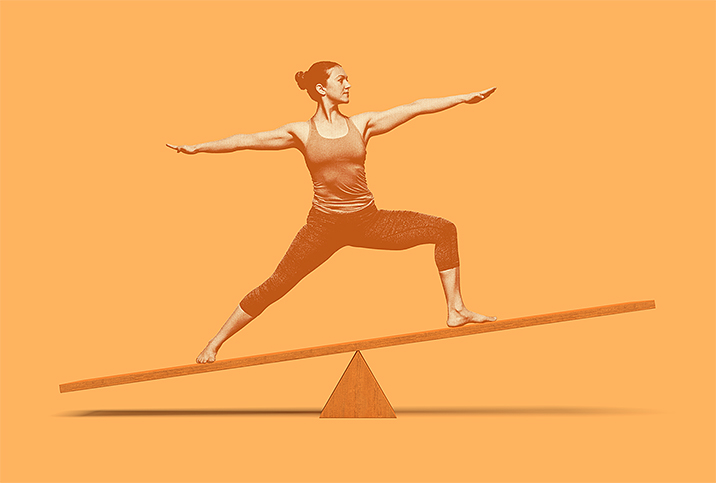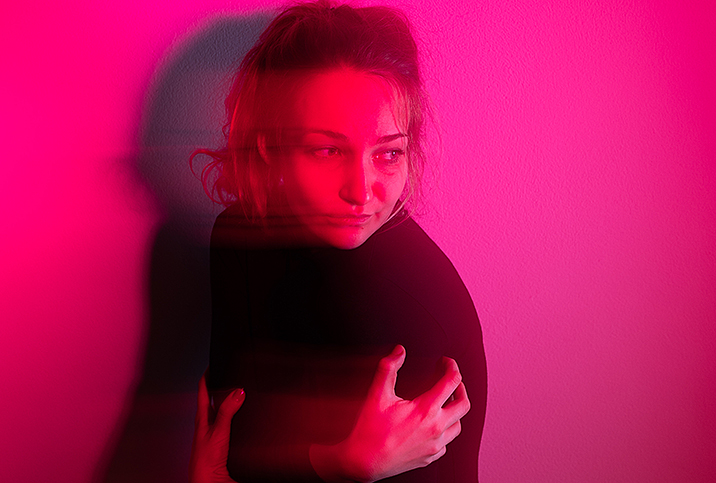Meditation and Exercise for Anxiety

An alternative or off-beat treatment can often prove to be the answer for a chronic health issue. If you've never considered meditation or exercise for relief from anxiety, here's why you should give both a chance.
The many forms of anxiety
Anxiety—fear, nervousness or apprehension about the future—is a natural physiological response to stress. But when feelings persist without an obvious stressor, you could be experiencing an anxiety disorder and should seek medical advice. The many varieties of anxiety include: generalized, social, illness, panic and separation disorders, phobias, obsessive compulsive disorder (OCD) and post-traumatic stress disorder (PTSD).
It's possible to suffer from significant anxiety without meeting criteria for any single disorder. Symptoms differ from person to person and depend on the type of anxiety experienced. Similarly, treatments also differ, but typically involve a combination of medications and cognitive behavioral therapy (CBT), and other therapies. Certain alternative therapies, including meditation and exercise, have also been highlighted for their beneficial effect.
Meditation
Meditation is a mind-body practice with benefits such as increased calm, clarity, self-awareness and attention span; decreased blood pressure; improved emotional health and sleep; heightened connection between brain, mind and body; and reduced stress and decreased anxiety. Meditation centers around the idea of mindfulness. It can be practiced in a variety of ways, but typically involves quieting the mind and body in a peaceful environment while focusing attention on an object, mantra or idea, sometimes along with the spoken words or sounds of a guided meditation.
Meditation for anxiety
Meditation can reduce anxiety in the short term but may be even more beneficial because of what it teaches: focusing on the present. A meta-analysis of more than 200 studies found mindfulness-based meditation therapy was beneficial in reducing anxiety. In another meta-analysis, Johns Hopkins University researchers reviewed 47 mindfulness meditation studies and found the practice assisted in relieving anxiety, depression and pain.
Finding your meditation style
If you're new to meditation, hop online and watch a short guided meditation video to walk you through the basic concepts, such as finding a quiet space, getting into a comfortable pose, slowing your breathing and training your mind to focus on the present. There are endless styles of meditation you can practice—even one you can do while jogging. Talk to your doctor about your goals and ask to obtain some baseline metrics such as blood pressure for quantitative evidence of the impact of your new skill. There is no "right" way to meditate. The goal is to ease your own mind.
Exercise for anxiety
Research has proven that exercise is another way to reduce anxiety, while also offering a plethora of other benefits to both physical and mental health. Exercise causes release of endorphins, which improve mood and block other chemicals linked to anxiety and depression. One study found rigorous exercise contributed to a 25 percent reduction in risk of developing anxiety or depression within five years. Three meta-analyses confirmed an association between aerobic exercise and reductions in anxiety. The impact depends on the individual and form of activity, but consistent exercise (several times a week) is most effective at achieving long-term results.
Finding your exercise routine
You don't have to run five miles to reap the anti-anxiety benefits of exercise. The key is coming up with your own routine you can follow regularly. Tai chi, dance, karate, weightlifting, hiking, high-intensity interval training (HIIT), swimming—options are endless and all can contribute to reducing anxiety. Some, such as yoga, have effects similar to meditation: calmness and a focus on the mind-body connection. Others, particularly more strenuous practices, reduce stress by physically exhausting the body and boosting endorphins. All are great, but you should speak to a doctor before starting a new exercise regimen.
Meditation and exercise could be the activities you've been missing in attempts to reduce your anxiety. Focus on the mind and body and enjoy what the connection can do for you.


















